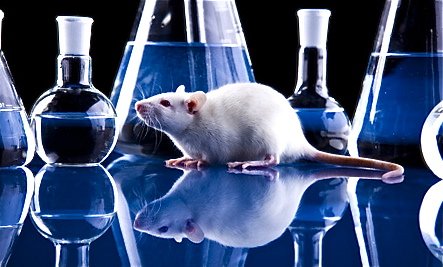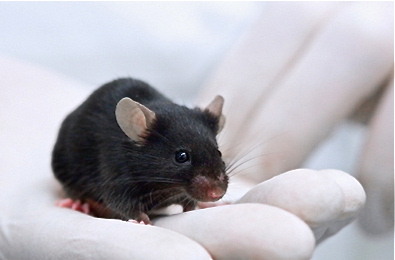The face cream smells delicious, feels gratifyingly luxurious, and promises to smooth out wrinkles. Best of all, the label reads “No Animal Testing.” Now you can be sure that no animals suffered or died to make this product. Right?
Wrong.
Despite what the label proclaims, this face cream, or any one of its ingredients, could easily have been rubbed into a bunny’s eyes, force-fed down a rat’s throat, or smeared over a guinea pig’s raw skin. Such practices continue at many cosmetic and skincare companies, even as the words “Not tested on animals” appear boldly on the labels.
“Consumers are shocked to learn that millions of animals each year are injected with or forced to inhale or ingest cosmetics. Those animals live in fear and loneliness every minute of their lives,” says Erin Edwards, media liaison for People for the Ethical Treatment of Animals, the animal-rights organization better known as PETA.
Wondering how companies get away with such brazen claims? Well, the label could mean that the company itself do no testing on animals, but instead hires a laboratory to do the dirty work. Or perhaps a company did not perform animal tests on that particular product, but it does on others.
Clairol’s Herbal Essence shampoo label, for example, clearly notes, “Not tested on animals.” Meanwhile, according to PETA, the company continues to conduct animal testing on its other products. Even some companies that advertise their products as natural, organic, or vegan, still use ingredients tested on animals.
Testing may be done by the suppliers, and a company may purchase ingredients with a “don’t ask, don’t tell” philosophy. Or testing may occur by a parent company, so statements on the label may be literally correct to shield the company from public relations problems – yet quite disingenuous, if not downright deceptive.
Reading between the labels
Since the label may not be telling the entire truth about testing, you need to do a certain amount of sleuthing to make sure you choose products that are 100 percent free of animal-tested ingredients (no matter who is doing the testing) and come from companies dedicated to that mission.
The good news? You can have your ethics, beauty indulgences, and an honourable relationship with the animal world – and it is easier to do than even a few years ago. Many more conscientious organizations, manufacturers, spa owners, and consumers have established cruelty-free policies and have taken a stand against unnecessary testing.
PETA has compiled a list of companies that have signed a “Statement of Assurance” that they (and their suppliers) do not and would not test on animals. You will find major brands like Revlon, MAC, Avon, and Estee Lauder on the list, as well as natural favourites such as Kiss My Face and Aubrey Organics. (Download the guide at CaringConsumer.com.) Brand names mentioned in the pages of Alternative Medicine also boast cruelty-free practices.
The guide was started 20 years ago with a wallet-sized pamphlet with only a handful of companies, as part of PETA’s Caring Consumer Project. Today, it has grown to include more than 550 companies that do not animal test their products. Just as importantly, PETA also offers a guide listing companies that do test, including Cover Girl, L’Oreal, Olay, and Max Factor – so you can avoid them.
The Coalition for Consumer Information on Cosmetics (CCIC) in the United States, which uses the Leaping Bunny name and logo, offers an animal-friendly shopping guide and also provides sample letters you can send to companies to urge them to stop animal testing. The coalition requires the companies it lists to prove that neither they, nor their suppliers, will conduct or commission animal tests during any stage of product development.
Power to the animals
Does it disturb you that your skincare and beauty regime may contribute to the pain, suffering, and death of countless animals? It is as simple as buying a different product at the grocery store or the cosmetics counter.
If your favourite brands do not appear on the approved lists, let your dollars do the talking and use the power of the pen. Boycott the products and contact the companies directly. Ask them to clarify their animal-testing policy, and politely encourage them to join PETA’s or Leaping Bunny’s cruelty-free programs.
Selected from Ecorazzi





